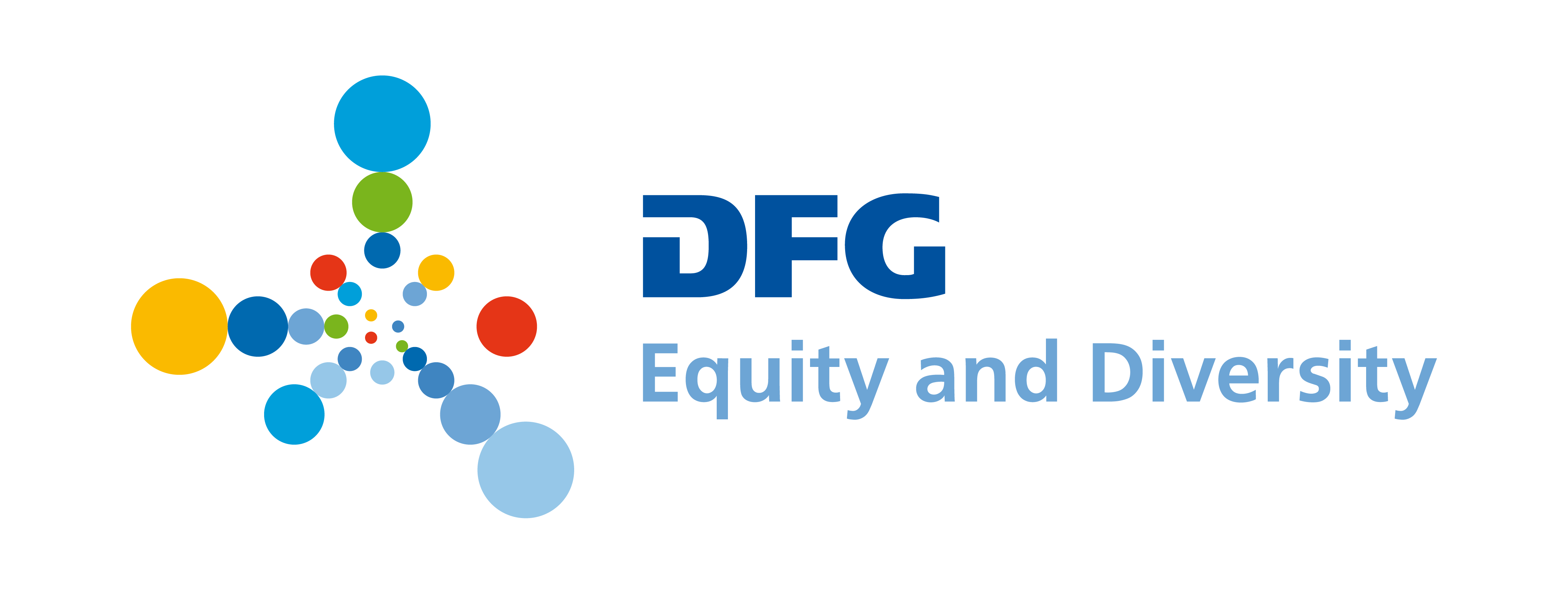Underrepresented Gender at the Project Management Level in Individual Research Areas
For information on gender inclusion funding for spokespersons, please refer to the information in DFG form DFG form 52.12 (Module Coordination)(interner Link)
Only spokespersons/coordinators whose gender is underrepresented at the management level in their specific fields can apply for gender inclusion funding. The term “field” here refers to the individual DFG research areas.
At present, female professors are underrepresented in all research areas, so female spokespersons of research networks in all research areas can apply for the budget, cf. last column of the table below (in German only).
The table is taken from the DFG’s 2025 Gender Equality Monitoring Repor(interner Link) (page 6 Tab. 1). The graphic is also available to you as a PDF documen(Download) and in PNG forma(interner Link) (in German only). The table is updated in spring each year. A balanced gender ratio is assumed at 50% +/- 5 percentage points.

Researchers at higher education institutions in Germany

Researchers at higher education institutions in Germany / Data basis and source: Statistisches Bundesamt (Destatis): Special evaluation of: Statistischer Bericht. Statistik des Hochschulpersonals. Berichtsjahr 2023. Statistisches Bundesamt (Destatis): Statistischer Bericht. Statistik der Promovierenden. Berichtsjahr 2023. DFG calculations.
Researchers at higher education institutions in Germany / Data basis and source: Statistisches Bundesamt (Destatis): Special evaluation of: Statistischer Bericht. Statistik des Hochschulpersonals. Berichtsjahr 2023. Statistisches Bundesamt (Destatis): Statistischer Bericht. Statistik der Promovierenden. Berichtsjahr 2023. DFG calculations.
The Extended Executive Board of the DFG has decided to adjust the eligibility criteria for the gender inclusion funding for spokespersons. As before, the data available from the Federal Statistical Office is used as the data basis for this purpose. The basis for determining underrepresentation is now the number of professors involved in each research area (there are 14 DFG research areas, such as humanities, social and behavioural sciences, biology, etc.); this is to be found in the last column of the above table. This adjustment not only simplifies the process for applicants, it now also fits in better with the procedures and classification otherwise used by the DFG. The grouping of professors into Destatis teaching and research areas has been used up until now, but this proved impractical and unsuitable.
This change and the focus on the research area will apply from now on to establishment and renewal proposals for Research Units, Clinical Research Units, Centres for Advanced Studies and Priority Programmes (cut-off date 1 November 2024). In the case of Research Impulses, it applies to all draft proposals and proposals submitted from 2025 onwards; in the case of Research Training Groups, it applies to proposals on which the respective Grants Committees are scheduled to decide in June 2025, and in the case of Collaborative Research Centres it applies to proposals on which the respective Grants Committees are scheduled to decide in May 2025.
Spokespersons involved in ongoing procedures are not permitted to submit supplemental or follow-up proposals due to the change in eligibility requirements; however, this is possible if a person from the underrepresented gender in the relevant research area takes over leadership of the group during the term of the network.
Contact
| E-mail: | edi@dfg.de |
